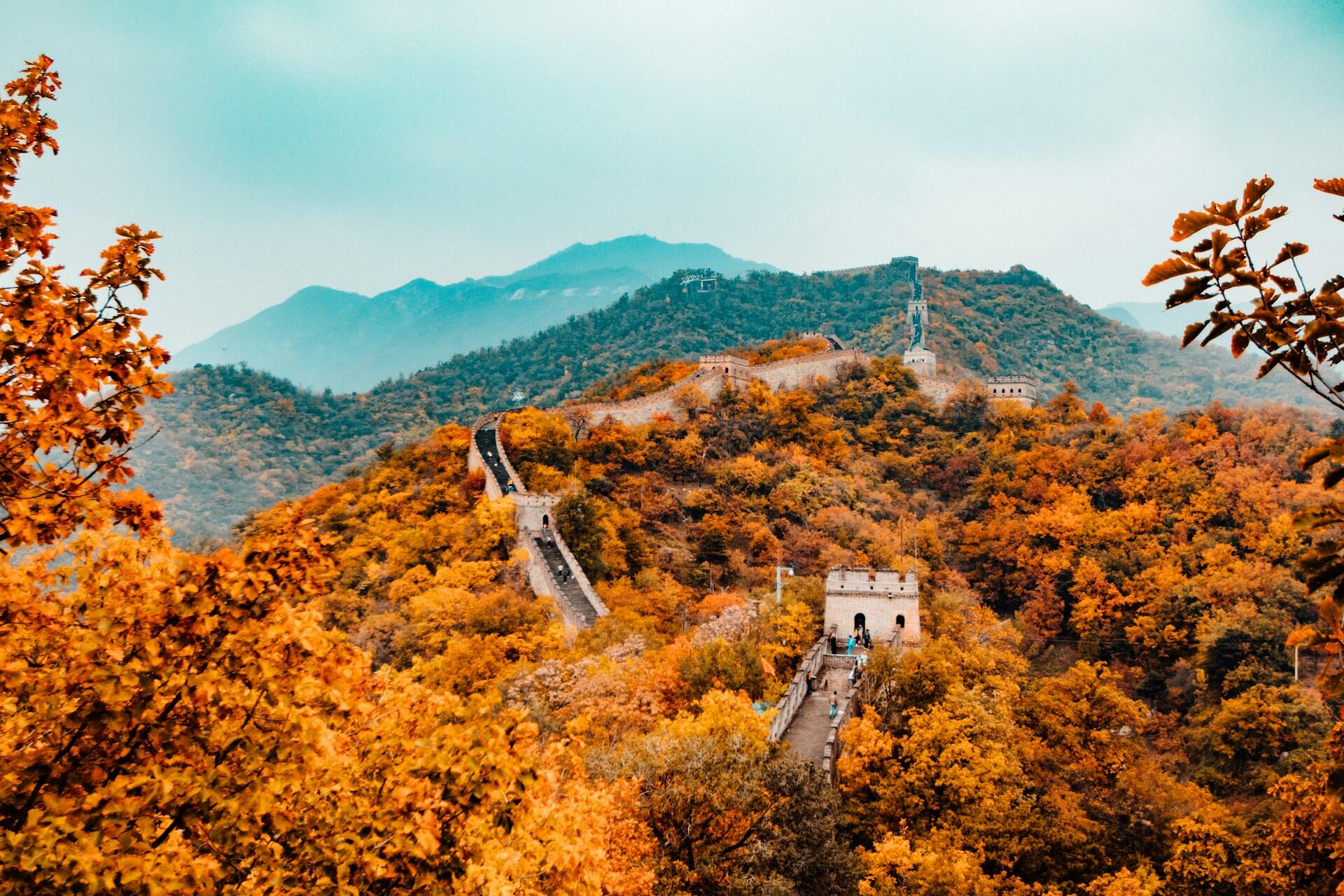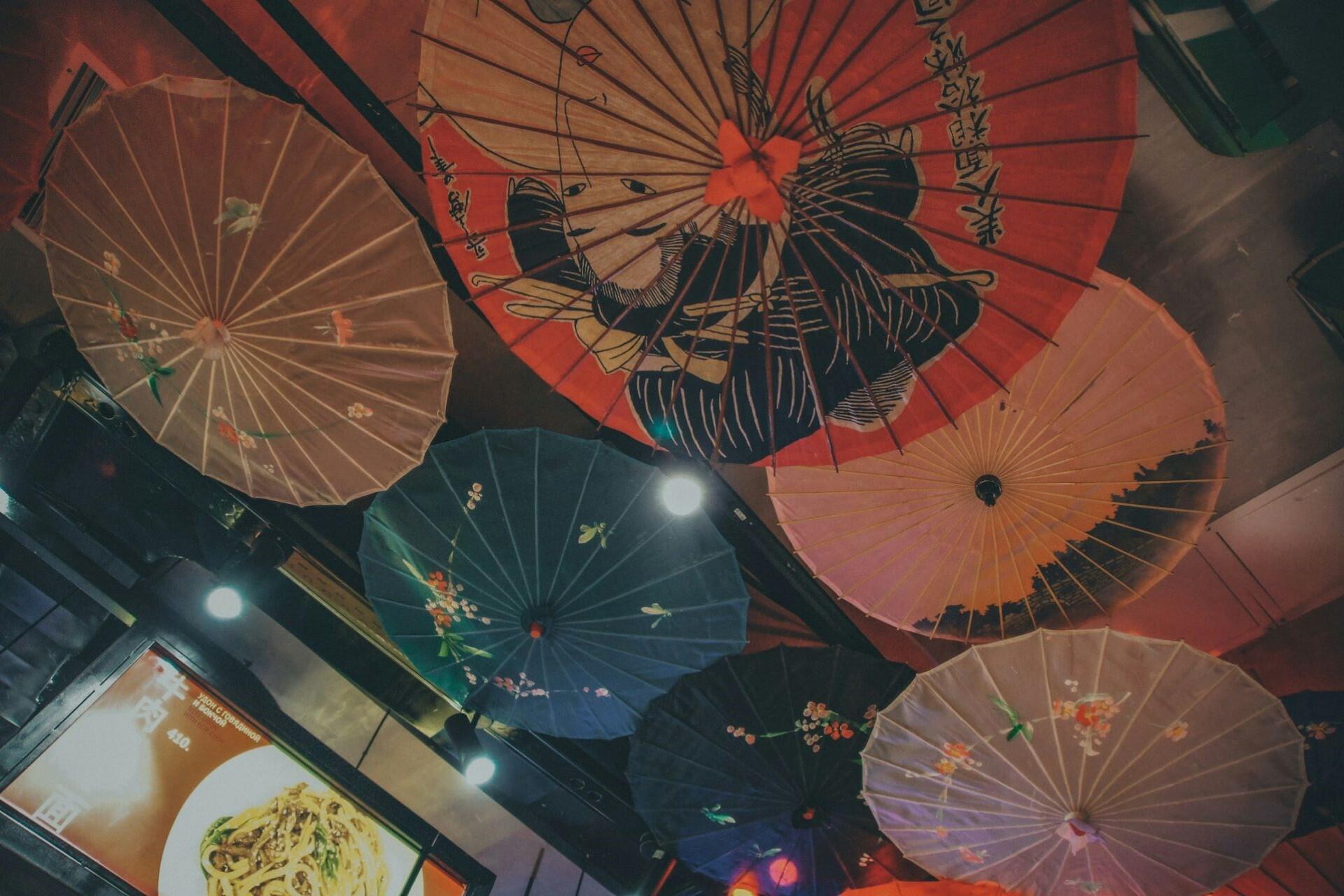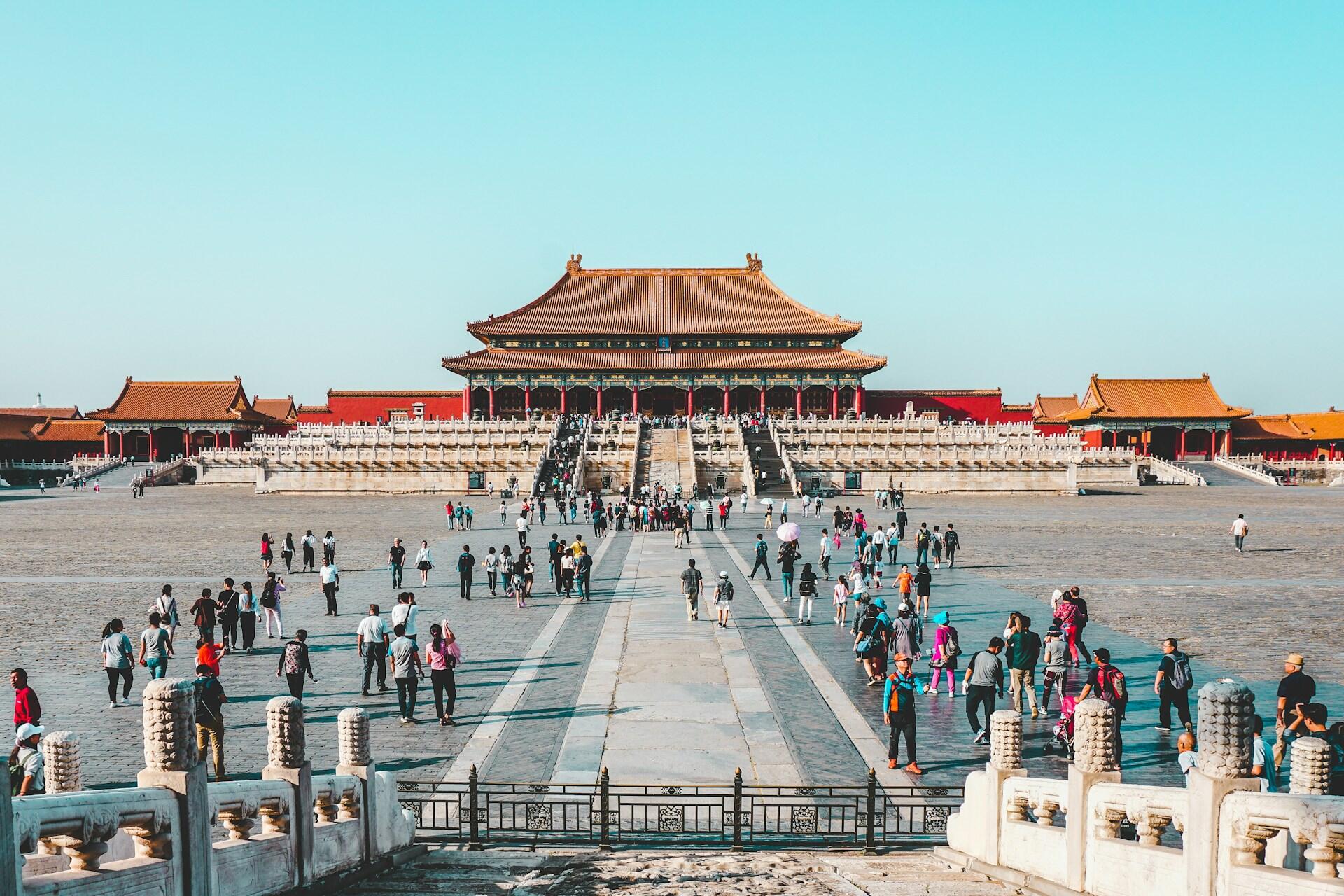The favor of a drop of water should be repaid with a gushing spring. / 滴水之恩定当涌泉相报。
Chinese Proverb
There are many ways to express gratitude in Mandarin. While 谢谢 (xièxiè) is probably what you'll learn first, there's more to it than that. Let's explore all the different ways to say thank you in Mandarin Chinese.
| English Meaning | 汉字 | Pinyin | Register | Typical Context | Audio |
|---|---|---|---|---|---|
| Thank you | 谢谢 | xièxiè | Neutral / everyday | Most general-purpose situations | |
| Many thanks | 多谢 | duō xiè | Casual–polite | Friends, colleagues, small favors | |
| Thank you very much | 非常感谢 | fēicháng gǎnxiè | Formal | Public remarks, speeches, heartfelt thanks | |
| Thanks! | 谢啦 | xiè la | Casual | Text/chat, light / friendly tone | |
| Thank you (to one person) | 谢你 | xiè nǐ | Casual / sincere | When expressing gratitude to one peer | |
| Thank you (to a group) | 谢谢你们 | xièxiè nǐmen | Neutral | Thanking two or more peers | |
| Thank you (formal) | 感谢您 | gǎnxiè nín | Respectful / polite | Thanking elders, teachers, superiors | |
| Thanks in advance | 先谢了 | xiān xiè le | Informal | Requesting help in messages | |
| Endless gratefulness | 感激不尽 | gǎnjī bù jìn | High-formal / emotional | Deep appreciation after major help or support | |
| Deeply grateful | 万分感谢 | wàn fēn gǎnxiè | Very formal | Strong gratitude, often written | |
| Thanks for your help | 谢谢你的帮助 | xièxiè nǐ de bāngzhù | Neutral / grateful | When someone directly assists you | |
| Thanks to you | 多亏了你 | duōkuī le nǐ | Warm / appreciative | When someone saved you trouble or helped significantly | |
| Deeply indebted | 承情 | chéng qíng | Literary / refined | Polite humility, often older / traditional | |
| Thank you for your gracious help | 承蒙关照 | chéngméng guānzhào | Formal / honorific | Used when someone looks after you or offers support | |
| Thanks for your concern | 多谢关心 | duō xiè guānxīn | Polite / personal | When someone checks on your wellbeing | |
| Thank you for your gift | 谢谢你的礼物 | xièxiè nǐ de lǐwù | Warm / personal | After receiving a gift | |
| Thank you for your warm hospitality | 感谢您的热情招待 | gǎnxiè nín de rèqíng zhāodài | Formal & appreciative | After being invited to dinner or hosted | |
| Thank you for your thoughtful consideration | 感谢您的体贴 | gǎnxiè nín de tǐtiē | Professional / respectful | When someone accommodates your needs | |
| Thank you for your time | 感谢您的时间 | gǎnxiè nín de shíjiān | Business / formal | Meetings, interviews, professional interactions | |
| Thanks to friends who speak dialect | 谢谢会说方言的朋友们 | xièxiè huì shuō fāngyán de péngyǒumen | Friendly / appreciative / contextual | When someone helps interpret or translate |

Why Saying “Thank You” Works Differently in Chinese
How many different ways can you think of to say 'thank you' in English? You might come up with anything from 'I sincerely appreciate this' to 'Cheers!' and everything in between. Our culture dictates there's a time for 'Cheers!' and a place for 'Thanks so much!'. Chinese culture has similar rules for thanking others and just as many ways to express gratitude. They range from the standard 谢谢 (xièxiè) to the informal 谢你啊 (xiè nǐ a) - 'thank you' and 'thanks', respectively. And several other phrases, besides.
As you're learning how to speak Mandarin, you must know that Chinese society has its formal aspects. Thus, you likely know that you have to use the right 'thank you' for the occasion. And you must do so with a level of cultural competence. This article helps you understand:
You might not give it much thought, but you likely thank someone several times a day. In our culture, saying those words is usually enough, but in Chinese culture, actions matter more than words. Saying 谢谢 (xièxiè) is the superficial part. Read on to discover how deep your gratitude must be and how you should show it.

Xièxiè: More Than Thanks
From our earliest days, our parents insisted we should say 'thank you' to everyone, for everything. Grandma gives you a gift and you say 'thank you'. Buying candy at the gas station also requires a thank-you. Being served at dinner, another kid sharing their toys, and someone paying you a compliment are all occasions for thanks.
In China, you won't hear too many parents exhorting their children to thank all and sundry. Likewise, few would thank the cashier for ringing up their purchases or the waitstaff for bringing their food. In this culture, 关系 (guānxì) – 'relation' – is more important than saying 谢谢 (xièxiè) at every turn.
In everyday China, saying 谢谢 (xièxiè) too often can sound overly formal or distant.
- Routine transactions like paying at a shop or receiving change don’t require verbal thanks.
- A nod, smile, or “好的 (hǎo de)” is enough to acknowledge the interaction.
- Overusing verbal gratitude may suggest you feel detached rather than connected.
You should say 谢谢 (xièxiè) when appropriate, of course. If someone does you a favor, your thanks imply that you will return the favor at some point. If someone you don't already have 关系 (guānxì) with gives you a gift, you will be effusive in your thanks and repay the esteem shown with an equally expensive (or meaningful) gift later. However, if someone pays you a compliment, you must brush it off. This society prizes humility. Thanking someone for a compliment implies you know you deserve it, a profoundly distasteful attitude in China. The proper response in this case is 哪里哪里 (nǎli nǎli) – literally “where? where?”, as though you too wanted to catch sight of such a terrific person. Alternatively, you may respond with 不不 (bù bù) – “no, no!” while averting your eyes and shaking your head.
In China, 'thank you' is neither rote nor transactional. Like every other aspect of this timeless culture, thanks are laden with meaning and carry a promise of ongoing connection. Saying the right 'thanks' at the right time could see you build 关系 (guānxì) all across China.


Common Ways to Say “Thank You” in Chinese
The 谢 character features in every form of Mandarin “thank you,” more often once than doubled. You can use the doubled 谢谢 as a standalone expression or go with 谢你了 (xiè nǐ le) – about on par with “thanks”.
You should use the double form to thank someone for something specific. For instance, if someone helped you do something, you would say 谢谢你的帮助 (xièxiè nǐ de bāngzhù). If a classmate informs you that today's lecture is cancelled, be sure to tell them 谢谢你告诉我 (xièxiè nǐ gàosù wǒ).
谢谢 (xièxiè)
- Standard, all-purpose “thank you” usable in most everyday contexts.
- 例句:谢谢你的提醒 (xièxiè nǐ de tíxǐng) — Thank you for the reminder.
谢啦 (xiè la)
- Casual and friendly “thanks!” often seen in chat or between peers.
- 例句:这次多亏你了,谢啦! (zhè cì duōkuī nǐ le, xiè la!) — Thanks, I really owe you one!
多谢 (duō xiè)
- “Many thanks”; polite but not stiff, common among friends or colleagues.
- 例句:多谢你今天的帮助 (duō xiè nǐ jīntiān de bāngzhù) — Many thanks for your help today.
谢你啊 (xiè nǐ a)
- Warm, slightly intimate “thanks to you,” with the particle 啊 softening tone.
- 例句:谢你啊,带我去看医生 (xiè nǐ a, dài wǒ qù kàn yīshēng) — Thanks for taking me to the doctor.
先谢了 (xiān xiè le)
- “Thanks in advance,” typically used in informal messages when requesting help.
- 例句:能帮我看看这个文件吗?先谢了! (néng bāng wǒ kànkan zhège wénjiàn ma? xiān xiè le!) — Can you look over this file? Thanks in advance!
More casual “thank yous” can appear with the single 谢 character in colloquial constructions. “Many thanks” is 多谢 (duō xiè), typically followed up with 你啊. The 啊 (a) particle lends the phrase intimacy. Put together, 多谢你啊 (duō xiè nǐ a) means “many thanks to you!” You can see other such combinations in this table:
Expressing Deep Gratitude
In Mandarin, gratitude can go far beyond a simple 谢谢 (xièxiè). If somebody really helped you, offered hospitality, or showed a profound kindness, it's recommended that you use a more formal or expressive way to convey your thanks. These phrases typically carry more emotional weight and you'll hear them being said with gestures of respect, gifts, or when somebody needs to carefully choose their words to show sincerity and humility.
非常感谢 (fēicháng gǎnxiè)
- “Thank you very much,” strong but natural for formal situations and public remarks.
- 例句:非常感谢大家的支持 (fēicháng gǎnxiè dàjiā de zhīchí) — Thank you very much for everyone’s support.
感激不尽 (gǎnjī bù jìn)
- “Endlessly grateful,” a high-register phrase for profound assistance; often written or ceremonial.
- 例句:对您的帮忙,真是感激不尽 (duì nín de bāngmáng, zhēn shì gǎnjī bù jìn) — I am endlessly grateful for your help.
承蒙关照 (chéngméng guānzhào)
- “Thank you for your gracious help / attention,” honorific; suitable toward seniors or superiors.
- 例句:一路上承蒙关照,多谢您 (yīlù shàng chéngméng guānzhào, duōxiè nín) — Thank you for looking after me along the way.
承情 (chéng qíng)
- “Much obliged / deeply indebted,” succinct, courteous, somewhat literary.
- 例句:多承情了 (duō chéngqíng le) — I’m much obliged.
多谢您的厚爱 (duō xiè nín de hòu’ài)
- “Thank you for your kind consideration / favor,” formal letters or acknowledgements.
- 例句:多谢您的厚爱,我会继续努力 (duō xiè nín de hòu’ài, wǒ huì jìxù nǔlì) — Thank you for your kind support; I’ll keep working hard.
When addressing elders, teachers, or business partners, formality matters.
- Use 您 (nín) instead of 你 (nǐ) for respect.
- Phrases like 非常感谢 (fēicháng gǎnxiè) and 承蒙关照 (chéngméng guānzhào) show cultural fluency.
- Pair your words with polite gestures such as 抱拳礼 (bào quán lǐ)—placing your right fist in your left palm—to express sincerity.
| Expression | Pinyin | Meaning | When to Use |
|---|---|---|---|
| 感谢你 | gǎn xiè nǐ | 'feeling thank you' | slightly more powerful than 谢谢 |
| 太谢谢你了 | tài xièxiè nǐ le | 'thank you so much' | when someone does you a big favor |
| 非常感谢你 | fēicháng gǎnxiè nǐ | you very much''thank | the ultimate 'thank you' |
| 你太客气了 | nǐ tài kèqì le | 'you're too kind' | when receiving a gift |
| 谢谢你们俩 | xièxiè nǐmen liǎ | 'thank you both' | when thanking two people |
| 谢谢你们都 | xièxiè nǐmen dōu | 'thank you all' | when thanking a group |
| 谢谢大家 | xièxiè dá jiā | 'thank you, everyone' | when thanking a crowd |
Incidentally, expressing love in Chinese culture is equally convoluted. You won't find any of the outward signs or coy games that Western lovers seem to enjoy. Like other aspects of Chinese society, romance in China is more pragmatic. Still, the Chinese have endearing and remarkable love expressions you might add to your repertoire.

Context Matters: Using Thank You Appropriately
You might be tempted to adopt the ultimate 'thank you' and use it in every situation, just to make sure you cover all the bases. At best, you’ll get some strange looks. At worst, your path to building 关系 (guānxì) would be permanently blocked.
Lest you remain forever an outsider, you must learn to use the right 'thank you' for a given situation. In most situations, 谢谢, followed by whatever you’re thankful about, is appropriate. For instance, 谢谢你邀请我晚饭 (xièxiè nǐ yāoqǐng wǒ wǎnfàn) – “thank you for inviting me to dinner.”
Save 非常感谢 (fēicháng gǎnxiè) for the utmost expressions of gratitude. Help in a dire emergency qualifies for such a degree of thanks. You should emphasize your thanks with a generous gift of fruit or other treats. Never offer money; that's considered vulgar in China.
Choosing the right register also means addressing people properly — 你 / 你们 for peers, 您 / 您们 for elders or superiors, and 大家 for larger groups. You should also make sure you're addressing the person/people correctly. “You” (你) is for people around your age and younger. If you’re thanking more than one such person, you must use the plural form 你们 (nǐmen). Note that 大家 (dàjiā) is the proper way to address groups of five or more people.
To thank someone older or in a position of authority—your teacher or boss—you must address them formally. For that, convert 你 to 您 (nín) or 您们 (nínmen) if thanking more than one such person. The actual 'thank you' does not change form.
Also, try to make your 'thank you' to such a person as neutral (but sincere) as possible. The mild 谢谢, said with your right fist in your left palm, should suffice in most cases. This formal 'thank you' demonstrates cultural competence; that hand gesture signals respect in Chinese culture.
Using the right 'Thank you' for the given situation is as exacting as using the right 'Hello'. But in either case, things in China aren't so different from our culture. You'll find a time and a place to lob a casual 'how are you' and others when you must be more formal. Luckily, 'Thank you' norms run parallel with rules for ‘Hello’, so if you master the rules, you'll know the right words for every occasion.

Incorporating Gratitude in Daily Conversations
What do you say to your parent when they let you know they've done something for you? "I've left your tea on the stove." "Thanks, Mom/Dad!" The same for "I've done your laundry", "I bought you something", and so on. It's like a reflex.
When a Chinese parent tells their child there are cookies in the kitchen for an afternoon snack, the kid will likely say 好的 (hǎo de) – “okay,” instead of “thank you.” This type of information sharing doesn't call for gratitude in China, only acknowledgement.
Remember that in China, 关系 (guānxì) is all-important. Building and maintaining relationships matter more than words of gratitude. You should strive to acknowledge people, not their deeds. Particularly if those deeds are matter-of-course, such as a clerk ringing up your purchase.
Saying “hello” and “goodbye” every time you enter your neighborhood stores builds 关系 (guānxì). Likewise, the worker might say 欢迎光临 (huānyíng guānglín) – literally “welcome to visit” or simply “welcome.” In all my years in China, I never heard any clerk thank me for my visit. And I never thanked anyone for their service.
However, I often heard (and said) 谢谢你来看我 (xièxiè nǐ lái kàn wǒ) – “Thanks for coming to see me.” All those tasty meals at friends’ homes invariably ended with 谢谢你请我们来吃饭 (xièxiè nǐ qǐng wǒmen lái chīfàn) – “Thanks for inviting us to dinner.”
The rule is that if someone does something for you personally, that action merits thanks. Your depth of gratitude should reflect the deed and convey your sincerity. That's true even if you're speaking with your boss, teacher, or someone older than you.
You might not think everyday exchanges are culturally significant, but these conventions matter. You've no doubt internalized our society's norms and follow cultural rules without giving them any thought. However, the minute you begin your Chinese experience, you'll feel the cultural weight of Mandarin expressions. Learning the language and building cultural competence will let you bear it with ease.
Summarize with AI:
















